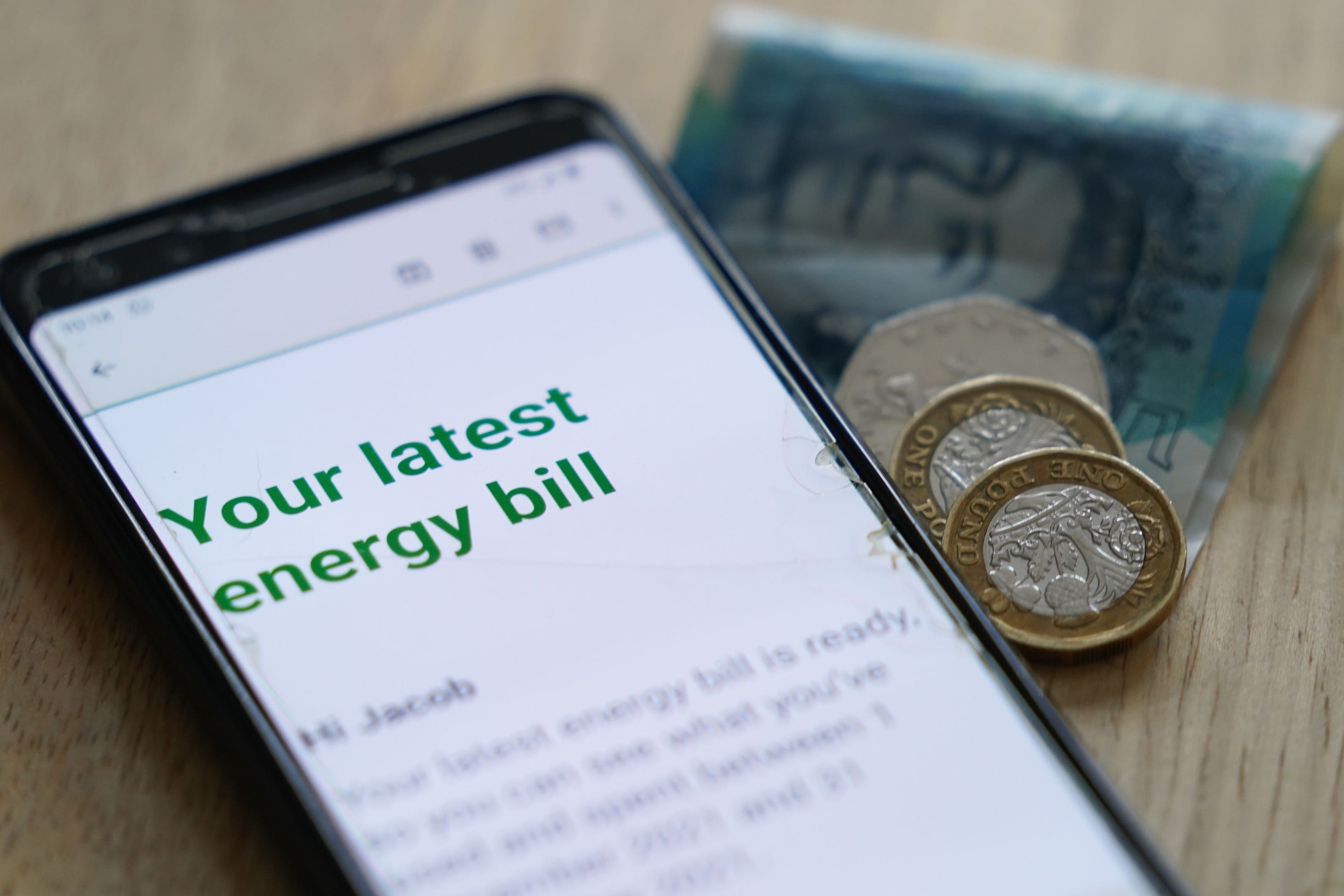Fuel poverty set to hit almost 11 million households from April – campaigners
The End Fuel Poverty Coalition urged the Government to focus on a new package of support.

Your support helps us to tell the story
From reproductive rights to climate change to Big Tech, The Independent is on the ground when the story is developing. Whether it's investigating the financials of Elon Musk's pro-Trump PAC or producing our latest documentary, 'The A Word', which shines a light on the American women fighting for reproductive rights, we know how important it is to parse out the facts from the messaging.
At such a critical moment in US history, we need reporters on the ground. Your donation allows us to keep sending journalists to speak to both sides of the story.
The Independent is trusted by Americans across the entire political spectrum. And unlike many other quality news outlets, we choose not to lock Americans out of our reporting and analysis with paywalls. We believe quality journalism should be available to everyone, paid for by those who can afford it.
Your support makes all the difference.The axing of the energy price guarantee from April next year could lead to almost 11 million UK households falling into fuel poverty, campaigners have warned.
The End Fuel Poverty Coalition described the outlook as “frankly terrifying” and urged the Government to focus on a new package of support and energy market reforms, alongside investment in home insulation and renewables.
The predicted increase from the current seven million households in fuel poverty to 10.7 million after the Government lifts its guarantee limiting the average household energy bill to £2,500 from April will then fall slightly – but will still leave 10.1 million households in fuel poverty in the winter of 2023/24, the group said.
The figures come as protesters gather in London to ask MPs to back plans for a universal basic energy allowance to meet heating, cooking and lighting needs, part of the ‘Energy For All’ petition which will be handed to Downing Street on Wednesday with more than 600,000 signatures.
The Warm This Winter campaign called for the immediate suspension of all forced transfers of households onto more expensive pre-payment meters, whether by court warrant or remotely via smart meters.
Ruth London, from Fuel Poverty Action, said: “The outlook is frankly terrifying. It is now all the more essential – and more possible – to win a totally new pricing framework like Energy For All. Finally there is now support for this inside Parliament.”
Simon Francis, co-ordinator of the End Fuel Poverty Coalition, said: “The Government may have brought some stability to the markets, but it has come at the cost of huge instability in households’ finances.
“The new Chancellor must work quickly, and with consumer groups and charities, to design a new package of support and energy market reforms that will help those in fuel poverty now and post-April.
“But while the political focus on energy bills may now have shifted to next April, millions of the most vulnerable will be living in cold and damp homes this winter and will need further financial and non-financial support.”
Some may simply not be able to afford to heat their homes
Meanwhile, consumer site MoneySavingExpert (MSE) urged some of the biggest energy firms to allow prepay customers with smart meters to use their £400 Government support payment on both electricity and gas, to ensure they can maintain heating this winter.
Prepayment customers with traditional meters can decide where best to use the payments, which come in six monthly instalments between now and March 2023, as they are sent as a voucher they can use to top up their electricity or gas meter. However for those with smart meters, the payment is usually applied to their electricity meter by default, so they have less choice.
Gary Caffell, head of energy at MSE, said: “We appreciate that suppliers have acted fast to deliver the first of these crucial support payments.
“But combined with the wider cost of living crisis – affecting all other areas of people’s finances – not allowing customers flexibility to transfer some or all of these payments to gas meters puts these people, many of whom are vulnerable, at a much higher risk of reaching a crisis point in the coming months.
“Some may simply not be able to afford to heat their homes.”